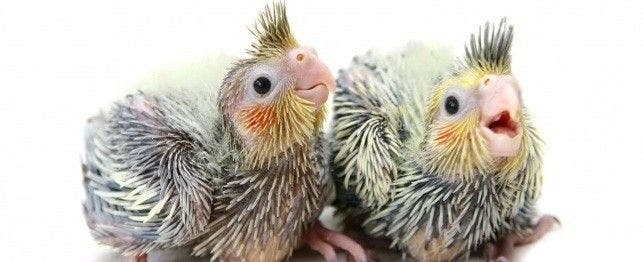
How to Care for a Fledgling
The best time to acquire a pet bird is just after the bird is weaned. At this stage – the fledgling period – the bird becomes independent and is able to eat on his own. Most of the health risks associated with young birds have passed, yet the bird is still young enough to bond to a new owner.
A few things must be recognized with birds at this stage. First, they are toddlers in a sense. They waddle around, curious about everything in reach but unaware of danger. A fledgling left on a table or counter is likely to wander to the edge, where he can fall and hurt himself.
Being new to the world of foods, a fledgling bird may attempt to eat just about anything. Everything – from small toys to cage bedding to pieces of towel – all may tempt him and he will swallow the food in large pieces, posing a potential health hazard.
In terms of food, it is critical at this time to start your fledgling on a proper diet. Many people mistakenly believe it’s good to offer seeds to “encourage the bird to eat.” That’s like offering a human baby chocolate to get him to eat. Young birds will accept healthy foods just as readily as they will seed mixes, so there’s no excuse for starting them off on birdie junk food. The sooner a healthy diet is implemented, the better.
Flight begins at fledgling age. If your bird has reached the point where he is able to fly, he may launch himself on out-of-control assaults at the nearest wall or window. Flying is a skill that your bird will learn through a brief trial and error period. While it doesn’t take long to become competent aloft, the first few attempts at flight may be reckless, and injury may result if proper precautions aren’t taken.
Tips on Learning to Fly
Some behaviorists recommend that all birds be allowed to learn to fly before their wings are trimmed. Here’s how you can help your young bird learn:
- As your bird exercises his wings, sit him on the floor and allow him to levitate as he flaps.
- Keep your bird in a large cage or small room to minimize his momentum. Birds that suddenly find themselves zooming through a large room can injure themselves on impact with whatever they encounter.
Since behaviors learned at the fledgling age persist through your bird’s entire life, this is the time to teach him his place in the home. Remember: A disciplined bird is a good bird. A spoiled bird can be a monster.
Behaviors to Watch Out For
- No pet bird should ever be at the top of the proverbial pecking order.
- Young birds should not be allowed to perch on shoulders.
- Birds should not be granted unlimited freedom.
- Birds should not be pacified at every demand. Behaviors that are reinforced at this age, such as screaming for attention, only get worse with maturity.
Some birds live half a century. How they are managed in the fledgling stage can determine how healthy they’ll be – physically and emotionally – for those 50 years, or even whether or not they’ll live their entire lifespan.